Posted: May 20th, 2016 | Author: Sven | Filed under: Report | Tags: Knowledge Exchange, RDM, Training | Comments Off on New KE report: Training for research data management: comparative European approaches
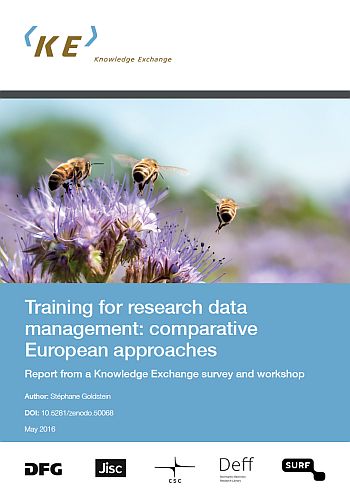 Knowledge Exchange (KE) has released a new report: “Training for research data management: comparative European approaches” is it called and it marks the preliminarly result of a longer time of discussions among several European stakeholders and communities.
Knowledge Exchange (KE) has released a new report: “Training for research data management: comparative European approaches” is it called and it marks the preliminarly result of a longer time of discussions among several European stakeholders and communities.
At the end of 2015, KE initiated a project to compare approaches in research data management (RDM) training within the partnership’s five member countries. The project was structured around two strands of activity:
The group developed a survey to collect information on current practice around RDM training, in order to provide an overview of the RDM training landscape in several European countries. Subsequently, a workshop in February followed to share successful approaches to RDM training and capacity building provided within institutions and by infrastructure. Read the rest of this entry »
Posted: December 15th, 2015 | Author: Sven | Filed under: Conference, Workshop | Tags: RDM, roles for libraries | Comments Off on How scientific infrastructure providers currently support RDM in the social sciences
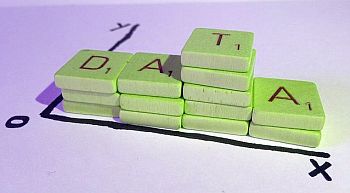 Though some months have passed, again I would like to draw our reader’s attention on a workshop that took already place in June in London. Organised by nereus, the European network of leading social science libraries, the workshop “Open Data, Restricted Data and the Library Role – Practical Cases in Economics and Social Sciences” featured presentations from several notable institutions who discussed their experiences of establishing research data management and RDM services. These presentations highlighted the various demands researchers face in this area and also the role(s) especially libraries can play in the administration or management of open and restricted research data.
Though some months have passed, again I would like to draw our reader’s attention on a workshop that took already place in June in London. Organised by nereus, the European network of leading social science libraries, the workshop “Open Data, Restricted Data and the Library Role – Practical Cases in Economics and Social Sciences” featured presentations from several notable institutions who discussed their experiences of establishing research data management and RDM services. These presentations highlighted the various demands researchers face in this area and also the role(s) especially libraries can play in the administration or management of open and restricted research data.
Read the rest of this entry »
Posted: May 16th, 2014 | Author: Sven | Filed under: Report, Research Data | Tags: Germany, infrastructure, RDM, University | Comments Off on German’s Rector Conference recommends RDM as strategic task for university directorates
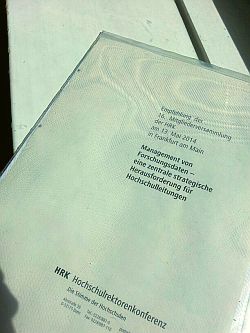 In a suggestion published a few days ago, the general meeting of the German’s Rector Conference (Hochschulrektorenkonferenz (HRK), a voluntary association of currently 268 state and state-recognised universities and other higher education institutions (HEI) in Germany at which more than 94 per cent of all students in Germany are registered), has advised university directorates to take the necessary steps to support research data management, crosslinking and long-term preservation of and access to research data. For these important tasks suitable infrastructure components are required – a task the German’s Rector Conference also suggests the university directorates to be responsible for.
In a suggestion published a few days ago, the general meeting of the German’s Rector Conference (Hochschulrektorenkonferenz (HRK), a voluntary association of currently 268 state and state-recognised universities and other higher education institutions (HEI) in Germany at which more than 94 per cent of all students in Germany are registered), has advised university directorates to take the necessary steps to support research data management, crosslinking and long-term preservation of and access to research data. For these important tasks suitable infrastructure components are required – a task the German’s Rector Conference also suggests the university directorates to be responsible for.
Read the rest of this entry »
Posted: March 20th, 2014 | Author: Sven | Filed under: Projects | Tags: data deposit, data repositories, DataBib, DataCite, RDM | Comments Off on re3data.org receives another two year grant #Update
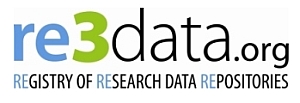 The project re3data.org has received another grant: The German Research Foundation (DFG) has extended the funding of re3data.org – a registry of research data repositories – for another two years. Congrats!
The project re3data.org has received another grant: The German Research Foundation (DFG) has extended the funding of re3data.org – a registry of research data repositories – for another two years. Congrats!
Until the end of 2015 re3data.org aims to implement new functionalities and to integrate more research data repositories. These repositories will be indexed to offer researchers, funding organizations and libraries all over the world an easy-to-use overview of the heterogeneous research data repository landscape.
Read the rest of this entry »
Posted: November 1st, 2013 | Author: Sven | Filed under: EDaWaX, Report | Tags: RDM, research data centres, WP3 | 2 Comments »
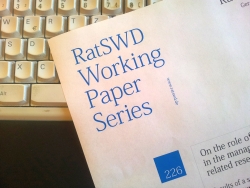 Our project currently has published the results of our work package 3 in which we analyzed the role of research data centres with regard to management of publication-related research data. This working paper presents the results of a survey among these scientific infrastructure service providers.
Our project currently has published the results of our work package 3 in which we analyzed the role of research data centres with regard to management of publication-related research data. This working paper presents the results of a survey among these scientific infrastructure service providers.
By conducting a desk research and an online survey, we found out that almost three quarters of all responding research data centres, archives and libraries generally store externally generated research data – what also applies to publication-related data.
Almost 75% of all respondents also store and host the code of computation (the syntax of statistical analyses). If self-compiled software components have been used to generate research outputs, only 40% of all respondents accept these software components for storing and hosting.
Eight in ten institutions also stated that they are taking specific actions for digital long-term preservation of their data. In regard to the documentation of stored and hosted research data almost 70% of all respondents claimed to use the metadata schema of the Data Documentation Initiative (DDI); Dublin Core was used by 30 percent (multiple answers were permitted). Almost two thirds also used persistent identifiers to facilitate citation of these datasets. Three in four respondents also stated to support researchers in creating metadata for their data. Application programming interfaces (APIs) for uploading or searching datasets currently have not been implemented by any of the respondents yet. Little widespread is the use of semantic technologies like RDF.
A German version of the paper is also available.
Photo: S. Vlaeminck. License: CC-BY-SA 3.0 DE
Posted: May 7th, 2012 | Author: Sven | Filed under: Projects, Research Data | Tags: RDM, Research Data, tools | Comments Off on Digital Curation Centre refreshed their catalogue of tools and services
 The Digital Curation Centre (DCC) has just refreshed and replenished their catalogue of tools and services for managing and curating research data.
The Digital Curation Centre (DCC) has just refreshed and replenished their catalogue of tools and services for managing and curating research data.
Beside a new look the catalogue has been overhauled to focus on software and services that directly perform curation and management tasks.
Read the rest of this entry »
Posted: April 25th, 2012 | Author: Sven | Filed under: Research Data | Tags: RDM, strategy | Comments Off on Monash University releases Research Data Management Strategy 2012-2015
 Monash University in Australia has released a strategy for managing research data. The strategy was jointly developed by the University Library, the Monash e-Research Centre and the university’s enterprise IT group, eSolutions.
Monash University in Australia has released a strategy for managing research data. The strategy was jointly developed by the University Library, the Monash e-Research Centre and the university’s enterprise IT group, eSolutions.
Monash University is active in RDM already for many years – milestones since 2006 include:
Read the rest of this entry »
Posted: March 12th, 2012 | Author: Sven | Filed under: Conference, EDaWaX | Tags: Conference, Goportis, RDM, research data management | 1 Comment »
 Those of you attending the German Bibliothekartag in Hamburg (22 – 25 May 2012) should be aware of an interesting session on research data management and add it to your personal conference program:
Those of you attending the German Bibliothekartag in Hamburg (22 – 25 May 2012) should be aware of an interesting session on research data management and add it to your personal conference program:
On May 24 there will be a session on “new structures and demands in scientific libraries – research data management in the Leibniz Library Network for Research Information.” In this session Goportis, the Leibniz Library Network for Research Information, is presenting some of its projects on RDM.
Read the rest of this entry »
Posted: November 11th, 2011 | Author: Sven | Filed under: Projects | Tags: Guidelines, RDM, Report | Comments Off on #rdtk_herts: First Project Report available
 The first monthly progress report of the project ‘Service Oriented Toolkit for Research Data Management‘ (aka #rdtk_herts) is available on the project website.
The first monthly progress report of the project ‘Service Oriented Toolkit for Research Data Management‘ (aka #rdtk_herts) is available on the project website.
The ‘Service Oriented Toolkit for Research Data Management‘ project, is running at University of Hertfordshire from October 2011 until March 2013.
The site also contains a brief introduction to the Toolkit and an article pointing to University of Hertfordshire’s data management policy, which the Toolkit seeks to enable.
University of Hertfordshire published new policy and guidelines for staff with regard to Data Management on September 1, 2011. Most of the policy and its appendices are available publicly on the University’s Policy and Regulation web site under Data Management Policy.
The most useful part of the policy for Researchers is the appendix: Guide to Research Data Management . This contains a checklist of questions, the answers to which lead to the formation of a good practice Data Management Plan and also facilitate the responses likely to be required by external funding bodies.
The production of further guidance and demonstration of commoditised services is one of the purposes of the Research Data Toolkit project, thereby helping researchers to ‘tick off’ their checklist, create successful bids, and establish and cement good data management.
The project team welcomes feedback and information from members of the Research Data Management community!
Posted: October 24th, 2011 | Author: Sven | Filed under: Projects | Tags: Guidelines, RDM, Research Data, Training | Comments Off on Mantra Project launches online training courses for RDM
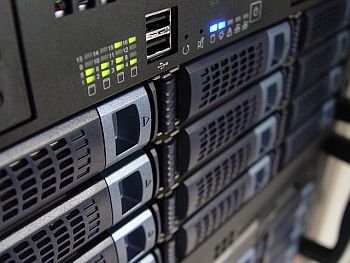 The MANTRA project has just pubished an online training course to help disseminate good practise in research data management at the University of Edinburgh and beyond.
The MANTRA project has just pubished an online training course to help disseminate good practise in research data management at the University of Edinburgh and beyond.
The online training course provides guidelines for the management of research data focussing on key concepts of data management. In addition practical exercices in handling data which learners can download and work trough at their own place are provided.
The Data Library team at EDINA produced the materials over the course of the past year as part of the JISC Managing Research Data programme.
Posted: October 20th, 2011 | Author: Sven | Filed under: German, Report, Research Data | Tags: RDM, Training | Comments Off on Reference Book “Research Data Management” published
 In the course of Frankfurt Book Fair, a new reference book for reasearch data managenent was announced.
In the course of Frankfurt Book Fair, a new reference book for reasearch data managenent was announced.
The reference book, published by Prof. Büttner, Prof. Hobohm (both FH Potsdam) and Lars Müller, gains insights in the management of research data in different scientific communities.
Beside other topics the reference book deals with the lifecycle of research data, data policies, judical subjects, metadata and standards, repositories for research data, digital preservation and the publishing of data.
The refence book is published by Bock and Herchen and additionally is available as open acess publication.
You can download the reference book here.
 Knowledge Exchange (KE) has released a new report: “Training for research data management: comparative European approaches” is it called and it marks the preliminarly result of a longer time of discussions among several European stakeholders and communities.
Knowledge Exchange (KE) has released a new report: “Training for research data management: comparative European approaches” is it called and it marks the preliminarly result of a longer time of discussions among several European stakeholders and communities.
 Though some months have passed, again I would like to draw our reader’s attention on a workshop that took already place in June in London. Organised by
Though some months have passed, again I would like to draw our reader’s attention on a workshop that took already place in June in London. Organised by  In a suggestion published a few days ago, the general meeting of the German’s Rector Conference (
In a suggestion published a few days ago, the general meeting of the German’s Rector Conference ( The project
The project  Our project currently has
Our project currently has  The Digital Curation Centre (
The Digital Curation Centre ( The first monthly progress report of the project ‘Service Oriented Toolkit for Research Data Management‘ (aka #rdtk_herts) is available on the
The first monthly progress report of the project ‘Service Oriented Toolkit for Research Data Management‘ (aka #rdtk_herts) is available on the
 In the course of Frankfurt Book Fair, a new reference book for reasearch data managenent was announced.
In the course of Frankfurt Book Fair, a new reference book for reasearch data managenent was announced.





